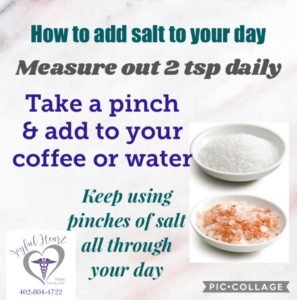As many experts have claimed, energy deficits will contribute to weight loss, but historically, patients opt to discontinue the “diet” even after being somewhat successful. Maintaining a total lifestyle change is required to avoid re-gaining the weight or succumbing to some health condition, i.e. diabetes, hypertension, hyperlipidemia, etc. Dr. Eric Westman from Duke University has been using a low carb, high fat (NOT truly Atkins) for several years now with good success, and is developing quite a following. Some of the earliest advocates of low carb, high fat (LCHF) eating were deliberately silenced by Ancel Keys’ strong personality and his aggressive methodologies. (See Barbara’s entry about low fat dogma.) Even from the beginnings of diabetes, ants recognized the urinary wastes from human contained sugars; somehow, “experts” in the 1950s – 1980s totally believed Keys dogma or were coerced to go along.
In recent years, Jeff Volek & Steve Phinney have published nutrition guidance that supports LCHF eating. I have begun utilizing LCHF nutrition in my practice and regularly am able to discontinue medications because glucose levels are falling into normal ranges. Patients come in for visits ecstatic that they have lost weight, lowered glucose, dropped cholesterol, and no longer need some medications. And most are willing to continue this lifestyle forever.
Nutrition advice should NEVER have come from committees that included insulin or statin manufacturers, cereal producers, or any other profession that could gain from the advice. Current American Diabetes Association (ADA) guidelines urge diabetic patients to consume about 160 Grams of carbohydrates daily. No matter what type of diabetic you speak to, each one of them will tell you right off the bat that they can NEVER get glucose controlled eating this way. They will tell you about spikes and lows and miserable symptoms; it is a terrible battle that most patients are tired of.
Diabetes should be looked at like it is an allergy to carbohydrates; reducing the recommended carb intake to 20 grams per day or less actually reverses diabetes and many providers and researchers are beginning to have data to support it. We have many patients who are now well-controlled using LCHF eating, and they express much gratitude for giving them their lives back.



